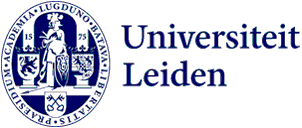
Writer in residence Maxim Osipov: ‘Writing is the development of truth’
Since criticising the war in Ukraine, Russian author and cardiologist Maxim Osipov has fled Russia. Come September, he will be Leiden University’s writer in residence and teach a course on Russian literature.
Osipov spent three months in Berlin after leaving Tarusa in Russia. On his Facebook page, he writes extensively about his stay and the train journey to Berlin:
‘On the train to Berlin, there are many refugees from Ukraine, almost exclusively women and children. They speak neither English nor German and are grateful for any help or accommodation: a compartment with children’s toys, restrooms, Internet connection. “Are you from Ukraine or…” – a pause – “…or have you lived here for a while?” They don’t wish to pronounce the name of your country – the aggressor, a terrorist state, which is the cause of their endless suffering. I’ve been in Germany for less than two weeks, but I already know that I will probably have to listen to pronouncements about good and bad Russians for the rest of my days and that the coming months and years will require, first and foremost, humility, a quality I do not possess in abundance. It is in this condition that I arrive in Berlin – a newly minted émigré with an overburdened conscience.’ (Facebook, Maxim Osipov)
After his time in Germany, Osipov is looking forward to his stay in the Netherlands. ‘It’s my favourite country in the world. I spent last November in Amsterdam, at the invitation of the Dutch Literary Fund. A very interesting experience. I love the neighbourhood, the people.’
Effect on Russian culture
Prominent Russian authors – and perhaps other artists – leaving Russia may affect the depiction of Russian culture and society in stories. Especially in Russian literature, a genre that has a long history of critiquing the Russian status quo. ‘I’m sure Russian authors leaving changes the picture we see,’ says Osipov. ‘It’s almost been six months, and there are quite some people leaving. Some, like my brilliant poet friend Sergey Gandlevsky, have moved to Tblisi and others are going to Berlin. Unfortunately it’s not that easy to go. Some people have elderly parents or other obligations, and it costs a lot of money.’
He doesn’t quite know what’s been going on in his home country since he left. ‘As writers we publish stories and novellas about our experiences,’ he says, ‘but we’re all watching the same Telegram channels, the same YouTube videos. It’s a strange immigration.’ Going back to Russia is no option – he doesn’t want the immigration to look cartoonish. But a life lived reflecting on what’s going on in Russia would be tragicomic, he adds.

Writing routine
Osipov is trying to write more, but wants to settle in Amsterdam first. He hopes the move will give him new impetus to write, as he now lives with his whole family and it’s a bit crowded.
Normally, he starts writing when a piece is nearly 50 percent ready in his mind. ‘I will know how the story will end, and the writing itself will add to the story. I don’t have a particular routine – writing never became a craft for me. Writers like Leo Tolstoy and Vasily Grossmann, have something to tell and therefore write a lot, write big novels. I belong to the authors who write to learn about what we’ve seen or experienced. It takes a lot of time, so I don’t write much. My good friend’s father Ilia Shmain, a priest, who died in 2005, told me his definition of the arts, which I like. In his opinion any kind of art – music or writing – is the development of truth. I try to look at writing as a developing form: it keeps developing as you write.’
He doesn’t think it necessary to say why he writes. ‘There is a constant question: Why do you write knowing there’s Russian giants like Tolstoy and Chekhov? But it’s like digging for gold. If you’re lucky you will find a big piece. But mostly, you will find sand, just golden sand. In the end though, it’s made from the same element.’
Russian short stories and novellas
Both Osipov and his father were men of science – him a medical doctor and his father an engineer – and both became writers at some point. But despite his many experiences in life, Osipov has never taught literature before. It’s a great responsibility, he says, because when you teach medicine, your students don’t necessarily love the subject. ‘They have to love Russian literature. That’s the core. So I've developed a programme with bilingual versions of various stories. My English translator Boris Dralyuk has recommended the best translations of these stories, and I'll share these with my students. Alongside the seminars I’ll do some talks and public events, so I’ll be quite busy!’
The course will include works by authors like Pushkin, Gogol, Chekhov, Tolstoy, Nabokov and Dostoyevsky. Maxim Osipov is looking forward to it.
Maxim Osipov will receive assistance from the Leiden University Fund Fund for Scholars at Risk.
‘Scholars all around the world are threatened because of their work, ideas or critical questions. The Scholars at Risk Fund was established in 2014 and provides temporary shelter for scholars in need. They can thus continue to work or study in a safe environment.’
Text: Imme Visser
